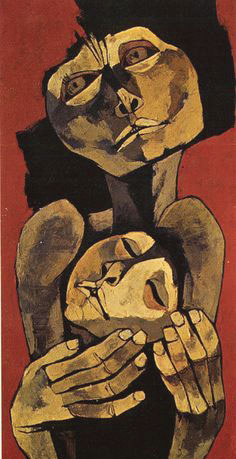Azadi ka Amrit Mahotsav Kolkata event honours four Clergymen
Pope Francis asks businesses to support working women: They’re ‘afraid to get pregnant’
Study: Christianity may lose majority, plurality status in U.S. by 2070
Indian politician declines Magsaysay Award under party pressure
Like John Paul II, Pope Francis heads to Kazakhstan during time of war

At postmodern times, the virtue of dialogue is in an awful situation because the concept of virtue has been reduced merely to a professional skill under the influence of pragmatic culture. Aristotle understood virtues as acquired and not inborn. Virtues can be nurtured only by practicing them consistently. A person is called to be virtuous only when ‘doing virtuous acts’ becomes his/her habit. It is a state of character that prompts one to choose the good against vice. This concept of virtue underwent radical change in course of the history of Church, yet, moral theologians agree that virtue is related to the intentions, dispositions and attitudes of the human person. A virtuous person will not remain isolated; s/he will necessarily try to change the society into a mediation of love, justice and truth.
This view is questioned by the postmodern culture. Postmodernity makes a sharp distinction between the individual and the roles played by him/her. Life appears to be a series of unconnected episodes in which the self-characteristics of the person are counted with minimum importance. The interconnectedness among the different roles performed by the same person is not taken seriously. Mac Intyre tells us that when the self is liquidated into a set of demarcated areas of role-playing there exists no scope to examine whether it has something to do with the disposition of man’s mind. Virtues, by nature, are pointing towards the right dispositions of mind rather than to the success in performance. But in the profit-oriented society, virtue of an administrator or a professional is judged on the basis of the skills that s/he deploys in action.
Here lies the problem. As regards the Christian understanding, virtue of a person becomes intelligible only when a particular act becomes in tune with the integrity that person enjoys in the totality of life. Virtue resides in the unity of selfhood which encompasses over the whole life. It can be clarified with an example. Suppose, when you go for outing it happened that you saw on the way a man struggling to pull his cycle-rickshaw on a petit altitude. Then you give him a help pushing the rickshaw from the back. Seeing this, suppose, a foot traveler asks you, ‘what are you doing?’ You may give different responses. The responses would be like ‘I am pushing the rickshaw,’ ‘I am taking exercise,’ ‘I am practicing love of neighbour,’ ‘I am fully in my hobby,’ ‘I am trying to be a witness to others,’ etc. Look, the same segment of human behaviour can be characterized in a number of different ways. Among these, a few answers may be translating your intentions and others could be its consequences. And the virtue of your act depends largely on the primary intention you have in doing that action.
Coming back to the postmodern culture, the issue is, the human behaviour is rarely influenced by the transcendental values; it is rather guided by the spirit of pragmatism. People value a principle on the basis of positive results of its application. Truth cannot be determined solely by epistemological criteria apart from the goals sought for. Values are accepted to the extent that they satisfactorily resolve problems. According to Richard Rorty (1931-2007), the American pragmatist, to call a proposition true it is enough that you manage to defend the oppositions raised from different corners against the position held. Truth inquiry is nothing more than ‘carrying on the conversations and respect of opinions of those around one.” There is no need to certify the veracity of knowledge with an objective authority or on the basis of transcendental properties. Truth is a matter of consensus and solidarity. The urge for transcendence is needless, illusory and dangerous. If truth is founded on pragmatic consensus and not on the fundamental principles in life how can we speak of a virtue which is built up on the dispositions, intentions and attitudes that are basically good?
kundu1962@gmail.com
Leave a Comment